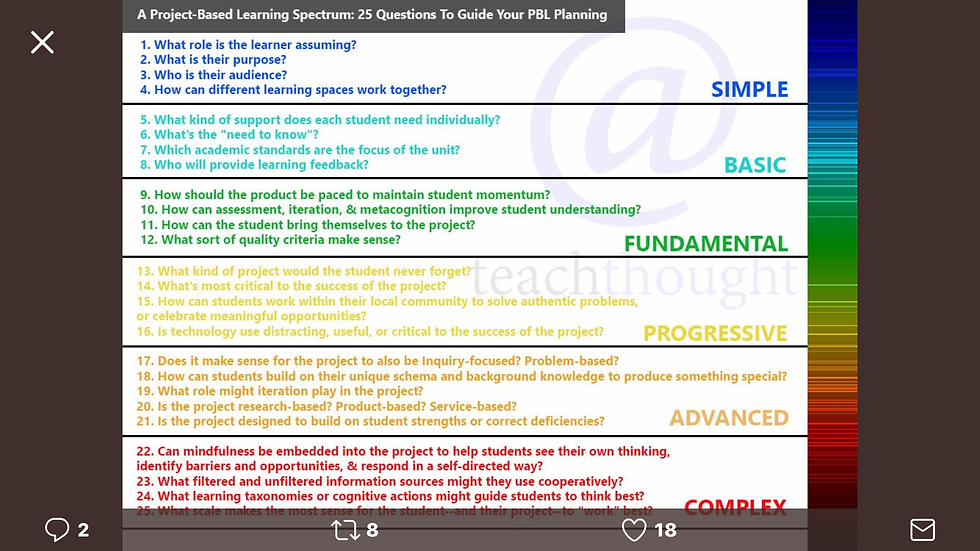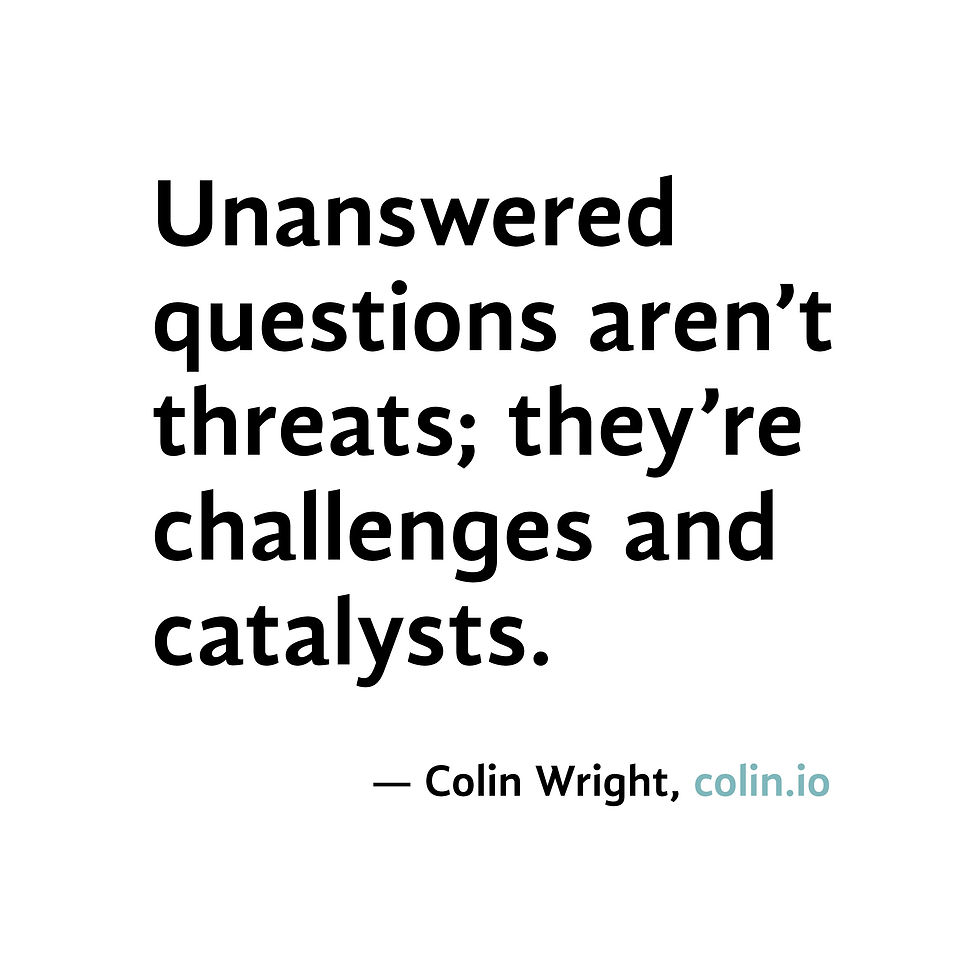Questioning
- suem0114
- Oct 26, 2017
- 3 min read
It occurred to me, as I wade through my plans and readings that one of the most basic necessities for any teacher is the artform of questioning. When I trained originally, it was a complete subject in my first year. Imagine, one hour a week for a semester. We developed questions, then had a VERY ADVANCED technology session where we were recorded as we role played in groups using our questioning technique. This was followed by viewing said video and some embarrassed reflection.
It occurred to me, that questioning is still a very relevant skill. We must teach the students how to ask insightful questions. We can do this through modelling or explicit teaching.
Questioning in the Classroom Published on Apr 18, 2014 by PCG
Here are some important factors to remember when questioning which I have found in researching Project based Learning from a paper written by the New York City Dept of Education . It is an excellent document from which I have picked some highlights and made up some examples
Essential questions:
are relevant in multiple settings (e.g. classroom, community and personal life), e.g. How does it help our community?
recur naturally, creating opportunities for transfer to other situations, e.g. How has it changed?
are open-ended, e.g. Why do you believe it to be important?
Encourage students to “integrate, synthesize, and critically evaluate information.” NYC p 12
go to the heart of a topic, e.g. Why is it important to have adequate food?
are challenging, e.g. Why is it better to go to school than work?
confront difficult issues or complex scientific ideas. e.g. How can we make our water clean?
can examine real-world dilemmas or natural processes that students find interesting, e.g. What will prevent our garden growing?
spark meaningful connections to prior knowledge and experiences, e.g. How can we use geography to plan our garden?
can be interpreted through and from a variety of perspectives,.e.g How does the garden help your family?
are consistent with curricular standards and frameworks, eg. How does the place we live in affect how we live?
lead to more questions, e.g. Should natural resources be used or protected?
Project-Based Learning: Inspiring Middle School Students to Engage in Deep and Active Learning Division of Teaching and Learning Office of Curriculum, Standards, and Academic Engagement

QUESTION STARTERS AND PROMPTS
To prompt factual and interpretive questions:

Who/What/When/Where?
Why does…?
How can…?
Who says…? What do others say…?
What caused. . . ? What is the effect of. . . ?
What was the point of view of. . . ?
What evidence supports. . . ?
What else. . .?
Why did. . .?
Help students write predictive questions:
What would happen if. . . ?
What would have happened if. . . ?
What might be the effect of. . . ?
What if. . . ?
Guide students to write focus questions that are
narrowed from the broad idea by the following factors:
Subtopic: What aspect of the topic has led to the greatest
controversy. . .?
Geography: Why was the situation different in this place?
Chronology: What factors made that decade the most
exciting one in 20th century Australia?
In all cases, students should evaluate their own questions critically before starting their investigation:
- Can the questions be answered with a simple factual answer or a “yes/no?”
- Do the questions lead to the heart of the subject and answers to the unit’s essential question?
- Are the questions intriguing in themselves, leading students beyond collecting what others have
Further reading
thought to developing their own interpretations and conclusions?
- Do the students care about finding out the answers?
[endif]--Excerpt from NYC Dept of Education p23
![endif]--



















Comments